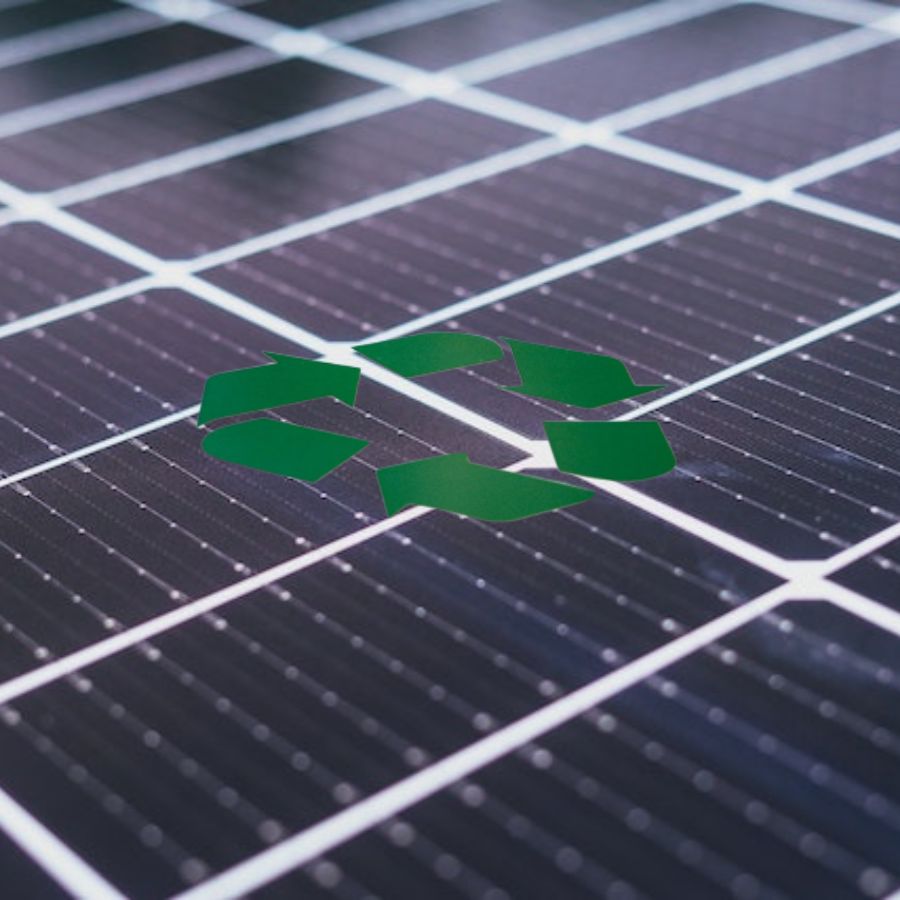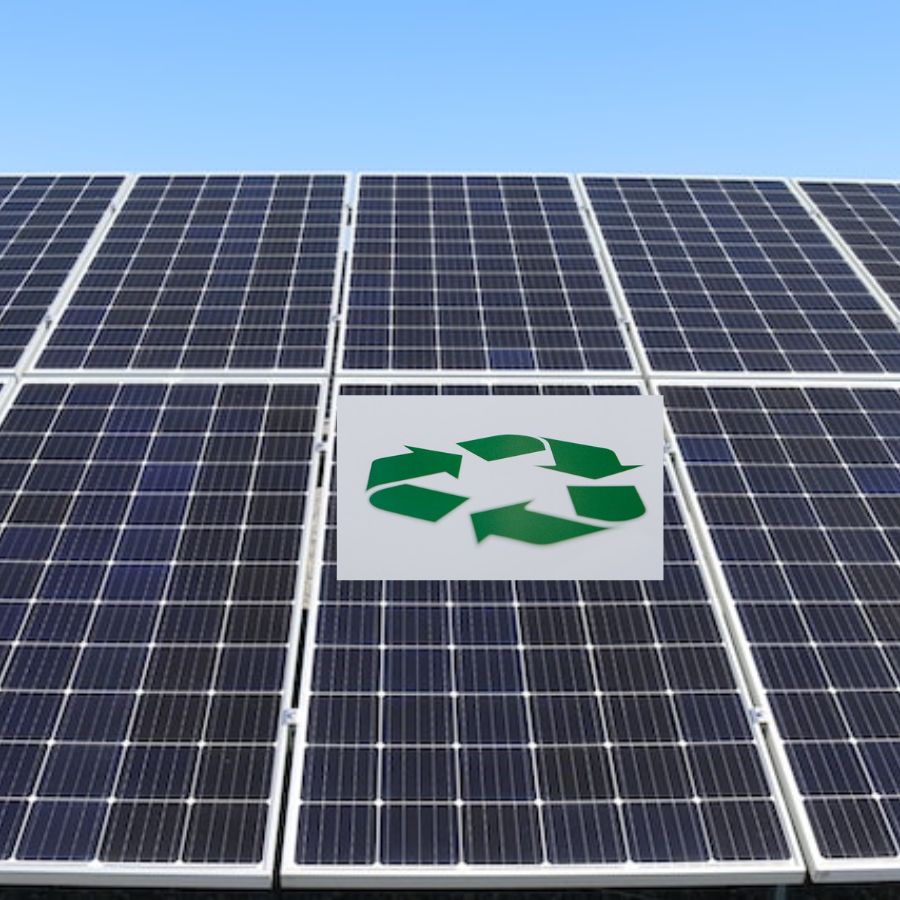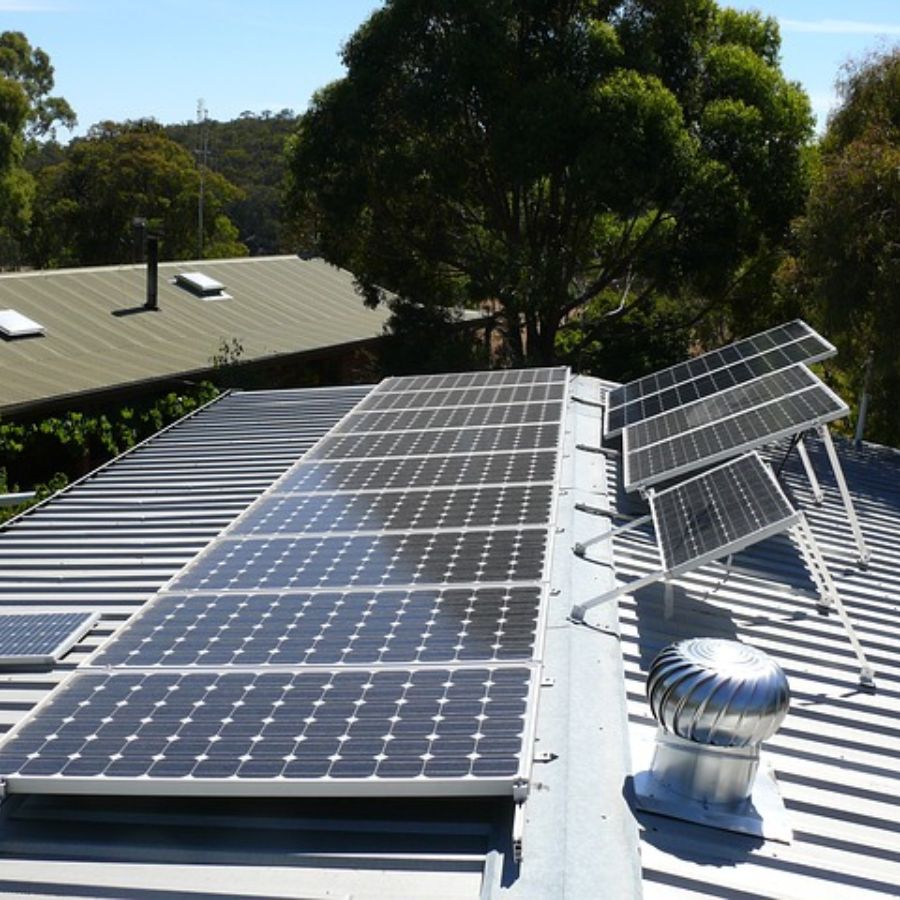The future is green and bright but also full of challenges as the demand for solar panels (or photovoltaic, PV panels) grows exponentially. In recent years, the issue of solar panel recycling has gained prominence, with BC, Canada, at the forefront of these efforts. This guide details the process, benefits, and challenges of recycling solar panels in BC, Canada. In addition, it highlights the vital role of solar panel producers and other stakeholders.
The Need for Solar Panel Recycling
Managing Solar Panel Waste
As per the International Renewable Energy Agency (IRENA), by 2050, the world will see approximately 78 million metric tons of solar panel waste. Solar panels have an “end of life” phase when they become less efficient and need replacement, typically after 25-30 years of service. Again, this implies anticipating substantial solar panel waste in the upcoming decades.
Potential Hazardous Waste
Solar panels comprise several components, including solar cells containing small amounts of potentially hazardous waste. While the quantities per panel are minor, the overall accumulation from millions of units could pose environmental challenges if not appropriately handled.
Sustainability and Renewable Energy
The overarching goal of adopting solar panels is to mitigate greenhouse gases and transition towards renewable energy. However, sustainability extends beyond energy production, emphasizing the need to manage solar panel waste effectively.
The Solar Panel Recycling Process in Detail

Though complex, the recycling process of solar panels is a strategic approach to managing solar panel waste. It’s a meticulous operation that allows the extraction of valuable materials while decreasing reliance on raw materials. We can better appreciate this process’s efficiency and significance by examining it in detail.
Collection and Transportation
The first stage of the PV panel recycling process is collection and transportation. Accepted solar panels reaching their end of life, those damaged or non-functional, are collected from various locales. These can range from residential rooftops to expansive solar farms and industrial installations.
The panels may need removal from professional maintenance crews, dedicated recycling services, or via drop-off at designated recycling centers.
Once collected, these solar panels require transportation to the recycling plant. Given the delicate nature of these devices, special care is taken during transport to avoid breakage. Again, it helps to make subsequent recycling steps more challenging and potentially expose hazardous materials.
The aim is to keep the integrity of the solar panel as intact as possible for efficient processing at the recycling plant.
Initial Treatment
Upon arrival at the recycling plant, solar panels undergo an initial treatment. The objective is to detach and separate easily removable components. The aluminum frame holding the PV panel together is detached first. As a valuable material, this aluminum helps to smelter for melting and repurposing.
The junction box, another component, is also removed at this stage. This part often contains valuable metals like copper, which can also be recycled.
Thermal Processing
After the initial treatment, the solar panels get exposed to high temperatures, often within a controlled environment such as a thermal oven. This process helps to melt away the plastic components, including the encapsulant that keeps the solar cells in place, exposing the solar-grade silicon and other metallic parts. By melting the plastic elements, it makes the extraction of solar cells easier in the next stage.
Mechanical and Chemical Treatment
The panel’s remaining assembly, predominantly composed of glass and solar cells, is treated mechanically in the subsequent phase. This mechanical treatment usually involves crushing the assembly and separating the glass from the mixture. The glass can then be recycled and used in various industries.
The solar cells, now free from glass, undergo chemical treatment. Also, this often involves a bath in a solution specifically designed to dissolve the semiconductor materials used in the solar cells, which include elements like silver and silicon. Once these dissolve, they go through extraction, filtration, and purification for reuse.
Quality Control and Repurposing
The final phase of the recycling process involves quality checks of the recovered materials to ensure they meet the necessary standards for reuse. The valuable materials extracted – solar grade silicon, metals like silver and aluminum, and glass – can now redirect to create new products.
For example, solar-grade silicon and silver can be used for making new solar panels, while glass and aluminum can find utility in various other industries.
We recognize this operation’s complexity and immense potential by understanding the intricate steps involved in the PV panel recycling process.
By transforming PV panel waste into valuable resources, we are effectively practicing the principles of a circular economy, adding longevity to our resources, and ensuring sustainability in our move towards renewable energy. As this process becomes more efficient and commonplace, it paves the way for a future where every PV panel can lead a second life once its initial service ends.
Extracting Valuable Materials
A National Renewable Energy Laboratory report indicates that recycling PV panels could lead to a $15 billion industry by 2050. This economic opportunity arises from the retrieval of valuable materials such as:
– Solar grade silicon: The pure silicon used in solar cells.
– Glass: Recycled from the top layer of the solar panel.
– Metals: Including silver in the cells and aluminum from the frame.
Recycling these materials reduces waste and decreases the need for new raw materials, promoting a circular economy.
The Role of Solar Panel Producers
Solar panel producers play a critical role in promoting and implementing recycling strategies. Producers can incorporate ‘Design for Recycling’ principles, where new solar panel designing happens with recycling in mind. It could significantly enhance the efficiency of the recycling process, allowing for easier disassembly and higher material recovery rates.
The Future Benefits of Solar Waste Management
As we steer our societies towards renewable energy, solar panels are becoming a more ubiquitous sight. However, as these PV panels end their service life, we face a new challenge: managing PV panel waste. But this challenge brings with it an array of benefits and opportunities. We can harness significant future environmental, economic, and societal advantages by devising strategies to recycle solar panels.
Environmental Benefits
Environmental protection is the most immediate benefit that comes to mind when considering recycling. Solar panels, if not appropriately managed at the end of their life, can add to the global issue of electronic waste. Recycling PV panels can significantly reduce the volume of this waste.
Additionally, the process of recycling solar panels helps conserve resources. Instead of mining for new raw materials to produce solar panels, recycled materials can be reused, reducing the environmental impact associated with extraction.
Besides, this aligns with the principles of a circular economy, whereby resources stay in use for as long as possible. It also helps extract their maximum value and then recover to create new products at the end of each service life.
Moreover, PV panel recycling can help mitigate greenhouse gases. Manufacturing new panels from scratch requires a significant amount of energy, which often comes from fossil fuels. Using recycled materials can lower these emissions, contributing to the fight against climate change.
Economic Benefits
Beyond the environmental implications, recycling PV panels can create new economic opportunities. As the market for PV panel installations continues to grow, so does the potential market for recycling these panels. It is a fact that the material recovered from PV panel recycling could be worth billions of dollars by 2050.
Not only does this represent a lucrative business opportunity, but it can also lead to job creation in the recycling sector. As more recycling plants come up to manage the growing volume of PV panel waste, more personnel will be needed to operate these facilities, leading to new employment opportunities.
Furthermore, reusing materials from recycled solar panels can help reduce production costs for new panels. One can sell recycled solar-grade silicon and other materials to manufacturers at a lower cost than new materials. Again, that potentially drives down prices for consumers and encourages further adoption of solar technology.
Societal Benefits
On a societal level, recycling solar panels can promote sustainability and environmental responsibility. We show that even our green technologies handling happens with consideration for their end-of-life impact. In addition, we can encourage more people to adopt renewable energy solutions without fear of contributing to future waste problems.
Moreover, public participation in recycling initiatives can foster community and shared responsibility toward environmental stewardship. Also, this can be incredibly impactful in educational settings, where children can learn about the importance of recycling and renewable energy from a young age.
In conclusion, the future benefits of managing and recycling PV panel waste are manifold. These benefits underline the importance of developing and promoting efficient solar panel recycling strategies. That is, from protecting our environment and conserving resources to stimulating economic growth and fostering societal responsibility.
Doing so ensures that our transition to renewable energy is genuinely sustainable, minimizing our impact on the planet while maximizing the value we extract from our resources.
Conclusion
The push for renewable energy and sustainable practices has catapulted the solar industry into the spotlight. However, the increase in PV panel use necessitates effective end-of-life management strategies. BC, Canada, has an opportunity to lead the way in solar panel recycling, turning potential waste into a valuable resource. They also help reduce greenhouse gas emissions and reliance on raw materials. With the right policies, technologies, and public participation, recycling PV panels can become a standard practice, ushering in a genuinely sustainable era of renewable energy.



Leave a Reply